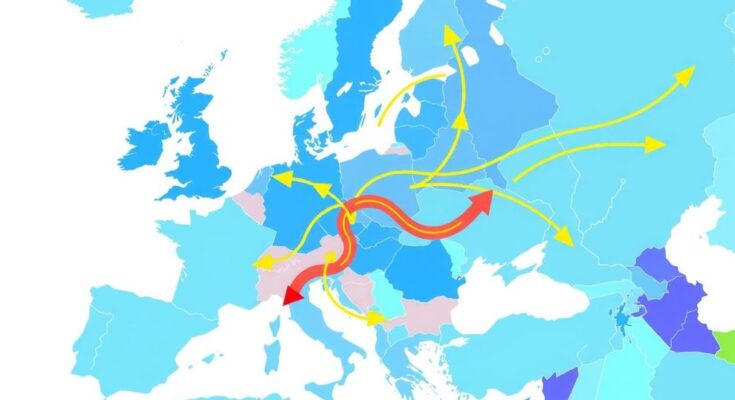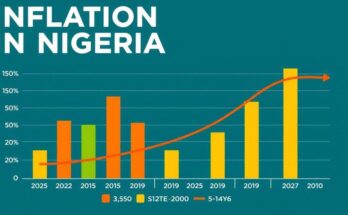This article summarizes key developments in global politics and socio-economic issues over the last few weeks, including Trump’s trade tariffs, German election outcomes, Europe’s demographic concerns, and the implications of foreign aid cuts by the US. Furthermore, it examines the state of housing in China and the historical context of Africa’s borders, emphasizing the relevance and urgency of these topics in contemporary discourse.
In recent weeks, data journalism focused on pertinent issues including the implications of US President Donald Trump’s trade policies, the German federal elections, and socio-political challenges across Europe and China. An analysis timeframe from February 15 to March 7 highlighted various significant stories based on this data.
Trump’s administration, within two months of his return to the presidency, has enacted import tariffs on goods from key trading partners such as China, Canada, and Mexico. While these tariffs fluctuate, the potential for additional tariffs on EU and UK goods looms. Axios reports that such trade policies might raise consumer prices significantly, affecting sectors like food, clothing, and electronics, given that over 40% of US imports derive from these major partners.
A Guardian report indicates that the rise of far-right political factions in Europe may further intensify the continent’s demographic decline. Birth rates are declining, and population projections suggest that without immigration, Europe will face a shrinking workforce and increased eldercare costs. The report includes graphs and maps illustrating the possible decline, predicting a 6% reduction in population by 2100 according to Eurostat data.
Germany held its federal elections on February 23, with the center-right Christian Democratic Union (CDU) capturing 28.5% of votes, while the far-right Alternative for Germany (AfD) increased its share to 20.8%, marking a significant political shift. The ruling Social Democratic Party (SPD) experienced its worst electoral performance. Detailed reports by the Süddeutsche Zeitung include comparative graphs of past election results and tools for analyzing coalition possibilities.
IStories reports that during the three-year anniversary of the Russia-Ukraine war, the Kremlin has concealed the numbers relating to military casualties, estimating around 104,000 Russian soldiers have died. Their project, Charon, serves as a continually updated database tracking casualties while allowing searches by various criteria. Other analyses, including a CNN report, visually dissect the changes in Ukraine since the war’s onset.
In Gaza, a Bloomberg analysis reveals the severe destruction post-ceasefire, with only 28% of buildings in certain areas remaining intact. Satellite imagery indicates substantial damage, highlighting the challenges as returning Palestinians now rely on temporary shelters amidst the ruins.
Al Jazeera’s visual exploration illustrates the complexities of Africa’s borders, rooted in colonial history. It delves into the peculiarities of border arrangements influenced by colonial powers, underscoring the legacy of the Berlin Conference that shaped the continent’s configuration.
A Civio report highlights how outdated algorithms continue to influence prisoner release decisions in Spain, emphasizing the need for updated assessment tools that reflect current societal values rather than antiquated models.
Under the current administration, the US has announced significant cuts to foreign aid, with Secretary of State Marco Rubio indicating a reduction of approximately 83% in programs under USAID. These cuts could have far-reaching effects, notably impacting aid-dependent nations, particularly in Africa and the Middle East.
Lastly, as analyzed by the Financial Times, China’s state-backed property sector is undergoing transformations with state-owned enterprises increasingly dominating land acquisitions amidst a real estate crisis. Satellite visualizations track ownership patterns in urban developments, signaling shifts in market dynamics and the state’s influence over the housing sector.
In summary, the landscape of global politics and demographics is increasingly shaped by significant developments over recent weeks. From potential economic ramifications of trade wars initiated by the US to demographic shifts in Europe and enduring challenges in unstable regions like Gaza and Ukraine, these narratives are critical in understanding current socio-political contexts. Additionally, issues pertaining to outdated algorithms in criminal justice in Spain and shifts in China’s property market underscore ongoing systemic challenges needing urgent attention.
Original Source: gijn.org




